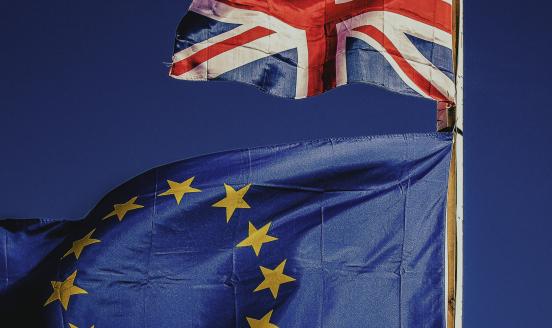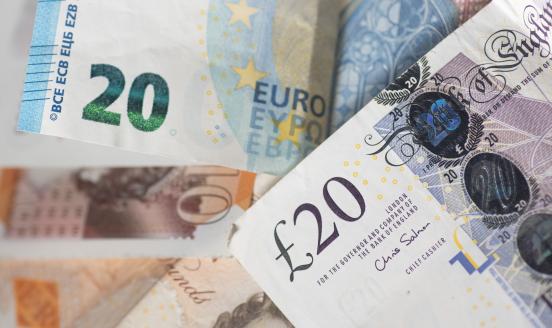The Brexit Transition Deal
Michel Barnier, the European Union’s Brexit negotiator, and David Davis, Britain’s Brexit secretary, announced a transition deal on March 19. We revie

If you are unfamiliar with the discussion over the Brexit transition deal, Alex Barker andMartin Arnold have a short but detailed list of FAQs out on the Financial times. David Henig and Julian Jessop also each have a thread out on Twitter that you may be interested in checking out.
James Blitz writes in his Brexit Briefing that the transition is agreed, but at a price. There are three reasons for caution. First, the transitional deal is not fully guaranteed, as it still depends on the successful conclusion of an Article 50 deal in the next 12 months, and there are three tracks to the Article 50 negotiation that stand in the way of an Article 50 deal: the Ireland question, the settlement of a future framework for trade, and the dispute resolution mechanism that will be needed for future trade relations. Second, the 21-month transition is too short for the UK civil service and much of British business. Third, and related, the transition agreement contains no sunset clause for a possible extension of the transition. Blitz thus thinks that the agreement is a sobering moment for British business, which has to stop believing in miracles and recognise the inevitability of change.
Chris Grey thinks that the deal can be seen as no more than an extension of the period of uncertainty: it is not, at this point, a transition to anything nor is it an implementation of anything. Future trade terms will not be agreed until after the end of the Article 50 period, and it seems unlikely that the detailed legal terms will be fully agreed in time for the end of the transition period – so a cliff edge is still a possibility.
There is also one particular uncertainty about the transition perioditself, when it comes to Britain’s access to EU trade agreements with other third countries. A footnote in the text says that the EU will inform those countries that Britain is to be treated as a Member State for the purpose of those agreements, but it is not clear that they are under any obligation to do so.
Grey thinks some Brexiters will make much of the fact that the transition terms allow Britain to both negotiate and ratify (but not implement) trade deals with other countries, but that is actually a hollow concession by the EU since it’s unlikely that other countries will want to sign up to trade deals with Britain before knowing the nature of Britain’s post-transition trade terms with the EU.
Apart from that crumb, there is nothing in the agreement that will commend itself to Brexiters, but they have little option but to go along with it. Conversely, that means that forremainers the prospects of avoiding Brexit look more remote, as it becomes much harder to mobilise public opposition to Brexit in the time available.
Ian Dunt thinks the transition agreement merely delays the inevitable and raises the stakes. Everything hinges on the Irish border question, which the EU could have forced on Britain now, but it did not. This seems like a major Brexit victory, but it is in a truth a relatively minor one because nothing has changed. A ball of impossibility sits there in the middle of the Brexit process and just keeps being kicked down the road.
The UK government is not going to agree to carve out Northern Ireland as a separate economic territory, and it is unlikely to keep the rest of the UK in the single market and customs union either. So the border cannot be around the UK, or in the Irish Sea, which means it has to be across Ireland – an option that the UK has, however, ruled out. In short, what the UK wants remains impossible, with the risk of facing the whole deal collapsing. Dunttherefore thinks that autumn is going to be a very intense and potentially catastrophic period in British politics.
Britain also announced that its contract to produce the new blue, post-Brexit passport is set to be awarded to a Franco-Dutch company – which created some clamour among Brexiteers, arguing that the UK will no longer be subject to EU rules of public procurement after Brexit. David Allen Green points out that the EU law of public procurement will continue to apply in the UK during the transition period, and it will then be virtually certain to be part of any UK-EU trade deal. As the EU views rules on public procurement to be an integral part of the single market, Britain will have to adopt them if it wants to provide services to the EU.
Rules on public procurement are also part of World Trade Organization obligations that the UK is likely to retain after Brexit. The rules are therefore not going to change soon after Brexit, and the various trade deals that Britain hopes for with third countries will also entail strict provisions. Brexittherefore may mean more foreign companies getting UK government work, rather than fewer. Blue passports were supposed to be a quick win, symbolic of the UK taking back control. But they are instead an early emblem of how little control the UK government is going to have in the harsh world of the international trade in services.
Pawel Swidlicki thinks the irony of Brexit is that leaving will mean more – rather than less – bureaucracy. Firstly, the EU has made the maintenance of a Level Playing Field a precondition for any form of new preferential trade deal. The UK is simply too big and too close for the EU to be relaxed about it pursuing a radically different economic model.
Besides ‘Brussels bullying’, powerful forces push the UK towards broadly maintaining its current regulatory model. First is public opinion, as there is no appetite for a fundamental rolling back of regulations in areas like employment law or consumer protection. Next is lobbying by those businesses which rely on trade with the EU and are worried that regulatory divergence will result in the erection of new non-tariff barriers to trade.
Immigration is another area where Brexit will entail more rather than less bureaucracy – as is trade, because even if the UK signs a post-Brexit free trade agreement with the EU which maintains zero tariffs, outside of a new customs union businesses are going to have to comply with bureaucratically onerous rules of origin designed to ensure that only goods covered by that agreement benefit. This is not to say there will be no post-Brexit scope for deregulation or flexibility to amend EU rules, but the great, transformative regulatory liberation envisaged by leading Brexiteers is unlikely to materialise.
Simon Wren-Lewis wonders why a large part of public opinion still seems to think that the UK will be economically better off leaving the EU – despite the view of the overwhelming majority of economists being that leaving will involve significant economic costs, and despite there having been actual costs already (e.g. in depreciation leading to higher import prices without any rise in wages).
Wren-Lewis offers two possible explanations. The first is that people are fully aware of what experts and the government thinks, but ignore this because they simply do not trust experts. The second and simpler explanation is that people remain unaware of the overwhelming expert opinion that they will continue to become worse off after Brexit. That, in turn, represents another victory for right-wing press propaganda, and another critical failure from most ofBritish broadcast media.
The Economist thinks that there is something – literally – fishy about Britain’s Brexit transition deal. One awkward concession in fact concerns fish, as Britain will now stay in the EU’s common fisheries policy until the start of 2021. Scottish Tories are especially upset, but Mrs May has no choice, as fisheries is too small an industry to be worth jeopardising a future Brexit deal over.
The real concern about the transitional deal is rather the short time given for it. Mrs May had asked for a deal lasting “around two years”; some ministers openly hoped for longer, but the offer is 21 months, which trade experts doubt will suffice to negotiate a comprehensive trade deal. A majority of the Commons Brexit committee is calling for an extension of Article 50’s two-year deadline, but the text of the transitional deal leaves it unclear whether an extension will be legally possible, let alone politically so.



